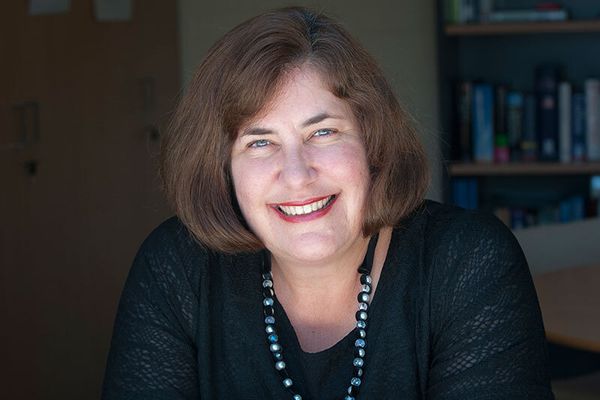Education: lighting the fire
By Louise Wallace-Richards, Acting Head of Secondary School

Last week, I joined our Chaplains, Andy Fleming and Katherine Rainger, and our Acting Principal and Head of Junior School, Andy Gordon, with Chaplains from Canberra Girls Grammar School and Burgmann Anglican School, as well as the Principal of Canberra Grammar, Justin Garrick, and Principal of Burgmann, Leonie Harwood, for the virtual 2022 Anglican Schools Association Conference, themed 'Lifted in Spirit'.
There were several inspirational speakers including Archbishop of Perth, Kay Goldsworthy, who spoke about our vocation as teachers in Anglican schools to help our students to consider the needs of others in our society.
During the conference, the much-quoted comment about the role of education, often attributed to Irish poet WB Yeats, was mentioned: 'Education is not the filling of a pail, but the lighting of a fire'. I have always liked the idea that students are not empty vessels to be filled with knowledge, and that education is about igniting curiosity, interests and passion for learning. In preparation for writing this article this week, I did some research about the context for the quotation and found there is a debate about whether Yeats even wrote or stated these words! Apparently, they should be attributed to the Greek philosopher and historian Plutarch. Plutarch, who lived between the years of 45–120 CE, provided a more comprehensive comment about what our minds need from education than the 'Yeats' quote:
'For the mind does not require filling like a bottle, but rather, like wood, it only requires kindling to create in it an impulse to think independently and an ardent desire for the truth.' — Plutarch
I have decided that I like Plutarch’s comment more, given it identifies the importance of thinking independently, which I also interpret as encouraging students to develop their own voice, not accepting ideas at face value and, of course, not accepting 'fake news'. 'Fake news' was named 'word' of the year by Collins Dictionary in 2017, and added to the Oxford English Dictionary in 2019.
The ASA Conference encouraged all participants to reflect on what it means to be an Anglican school, and for me, it has always been about the importance of teaching our students values that promote the focus on treating others with care and respect. I see evidence of the teaching of these values every day at Radford. Some examples these past two weeks have included the memorial rugby matches organised by students and played last week to celebrate the life of Michael Crawford, former Radford Studies of Society and its Environment (SoSE) teacher and rugby coach extraordinaire. The 'Wear it Purple Day' on Friday last week, to promote inclusivity, is yet another example of how Radford students and staff show care and respect for others.
Plutarch’s view that the mind needs 'kindling' to learn to think independently is still a fair point, but neuroscience in the 21st century would also argue that we need to teach students how to self-regulate their thinking too, through sharing with them strategies they can implement themselves to address distractions such as those provided by devices Plutarch could never have dreamed of.
Those who have read my articles as Assistant Principal Teaching and Learning over the past three years are well-informed of our project with Dr Shyam Barr from the University of Canberra focusing on self-regulated learning (SRL). Last week we began the final phase of the project, focusing on classroom teachers being led by Dr Barr to examine closely their implementation of SRL in their lessons. One-on-one interviews have been held with all participants and now the teachers involved will undertake the next phase of learning led by Dr Barr represented by the diagram below. I am looking forward to seeing the deeper embedding of SRL by teachers in our Secondary School lessons in the months ahead.

Providing further professional learning support for the teaching of SRL strategies to our staff and students, the program of our annual iTea this month focused on using iPads to assist our Year 7 students to avoid distractions. Teachers learned how Apple Classroom can help students regulate their behaviours, and how utilising iPad settings can also help them to improve their reading comprehension skills, another of our year-long teaching and learning foci for 2022.
Thanks to Jason Golding, Assistant Principal Teacher Development, and Academic Executive Administration Assistant, Kelly McMahon, for the organisation of the iTea,
and for their presentations: Lisa Plenty, Director of Digital Learning and Innovation, Eric Jensen, Technology Coach and teachers Sam Lonsdale, Tegan Crain and Jeremy Hawkes.

